Data Science
As technology and hardware continuously improves, data from practically everything can be captured, monitored, and modeled. Data science is an emerging field that uses data to solve problems. Information or data is used in business analytics, distributed cloud computing, data visualization and presentation, data mining and statistical analysis, and other disciplines. Businesses strive to optimize applications and maximize the interests of its consumers by interpreting captured data. The goal of a data scientist is to evaluate the captured information and gain some insight from it.
Data science is a multidisciplinary area related to data mining, big data, machine learning, and artificial intelligence that helps provides useful insights, predictions, recognitions, and analytical solutions for these areas.
When you study data science, you create statistical models for data collections and use common software tools a data scientist would use. Completing the certificate gives you the knowledge to develop applications for data-centric software that can be used to extract knowledge from collections of data sources for varying topics and questions.
STRENGTHS OF THE COMPUTER SCIENCE DEPARTMENT
The strengths of the UW-Parkside Computer Science department include:
- High-quality Instruction | The department has continuously proven to produce high quality graduates, as evidenced by the high scores achieved by seniors on international standardized tests, the high placement rate of graduates in industry, and competitive wins or placement in regional programming competitions. High results are attributable to small class sizes, a good curriculum, and faculty interest.
- Regional Opportunities | The region, located between the two major cities of Chicago and Milwaukee, provide ample opportunity for student internships, employment, and community-based learning projects. The region is also one of the most populous from which to attract students.
- Broad Based Modern Program | The computer science faculty recognizes the need to adapt its curriculum to regional needs and student abilities. The high portion of faculty with industry experience ensures that the content and quality of the program can meet business needs. The high portion of faculty with PhDs ensures that the program is sufficiently theoretical to ensure that students develop critical thinking abilities.
- Congenial Department | The faculty members have a good working relationship both with each other and with students. The department culture is one of shared governance and consensus. Faculty members take an interest in the students, and work to build relationships with them.
COMPUTER SCIENCE CAREER FIELDS
Business Analyst | Works as a liaison to analyze and communicate business processes into technical requirements which a programmer or developer can then use to create systems which meet all requirements of the customer.
Database Administrator | This person is responsible for the environmental aspects of a database. The role of a database administrator has changed according to the technology of database management systems (DBMSs) as well as the needs of the owners of the databases. For example, although logical and physical database design are traditionally the duties of a database analyst or database designer, a DBA may be tasked to perform those duties.
Full Stack Developer | Full Stack Developers are computer programmers who are proficient in both front and back end coding. Their primary responsibilities include designing user interactions on websites, developing servers and databases for website functionality and coding for mobile platforms.
Information Systems Auditor | Ensures a company adheres to legislation and best practices to increase efficiency and reduce risk while ensuring legal compliance.
Mobile Developer | Mobile developers are a type of software developer. They specialise in mobile technology such as building apps for Google's Android, Apple's iOS and Microsoft's Windows Phone platforms. For this reason job titles for this type of role also include Android developer and iOS developer.
Programmer | This person writes, tests, debugs, and/or maintains the detailed instructions, called computer programs, which computers must follow to perform their functions. Programmers also conceive, design, and test logical structures for solving problems by computer for business, scientific or consumer applications.
Project Manager | Defined as a facilitator. Plans, tracks, and manages computer-orientated projects, communicates with customers, developers, service providers and/or vendors. Directly responsible for making decisions in such a way risk is controlled and uncertainty minimized.
Quality Assurance or Test Engineer | Ensures software products work as specified. Designs, develops and documents test plans.
Security Analyst | Develops and implements plans and configurations to ensure secure data and information resources.
Software Engineer | Applies the principles of software engineering to the design, development, testing, and evaluation of the software and systems which make computers, appliance, machinery, or anything which uses software to work effectively.
System or Network Administrator | Configures, manages and maintains computers and their networks.
Web Developer | Web developers work independently as freelancers or with company teams to create websites. Depending on the job, these professionals may focus on front-end development, which involves designing sites and producing content, or back-end development, which involves writing code to make website features work.
PROGRAM CONTACT INFO
Barbara Hasper | 262-595-2314 | hasper@uwp.edu
Our undergraduate program is based on ACM.IEEE internationally recognized guidelines for Computer Science. This means that our courses contain rigorous content. It also means that students can easily transfer to our program from other universities. Our undergraduate program is highly respected in the region with approximately 99% of our graduates employed in professional positions or furthering their education in graduate school.




